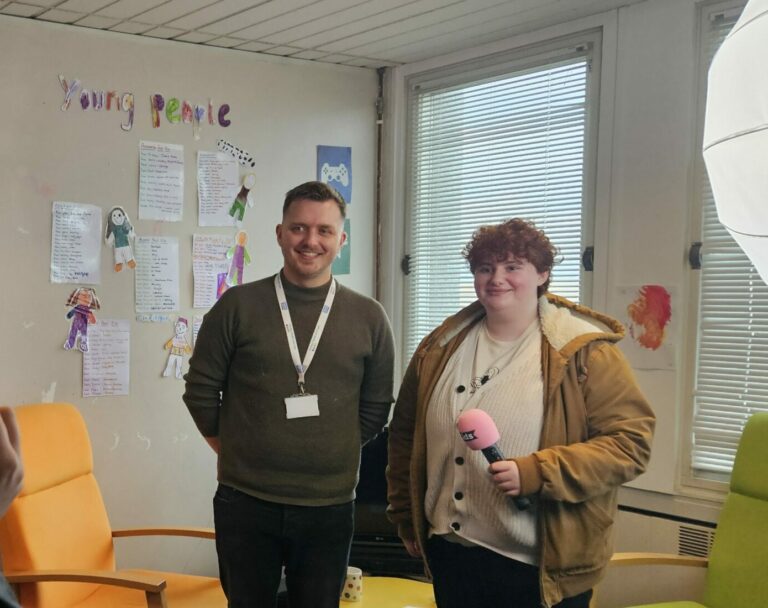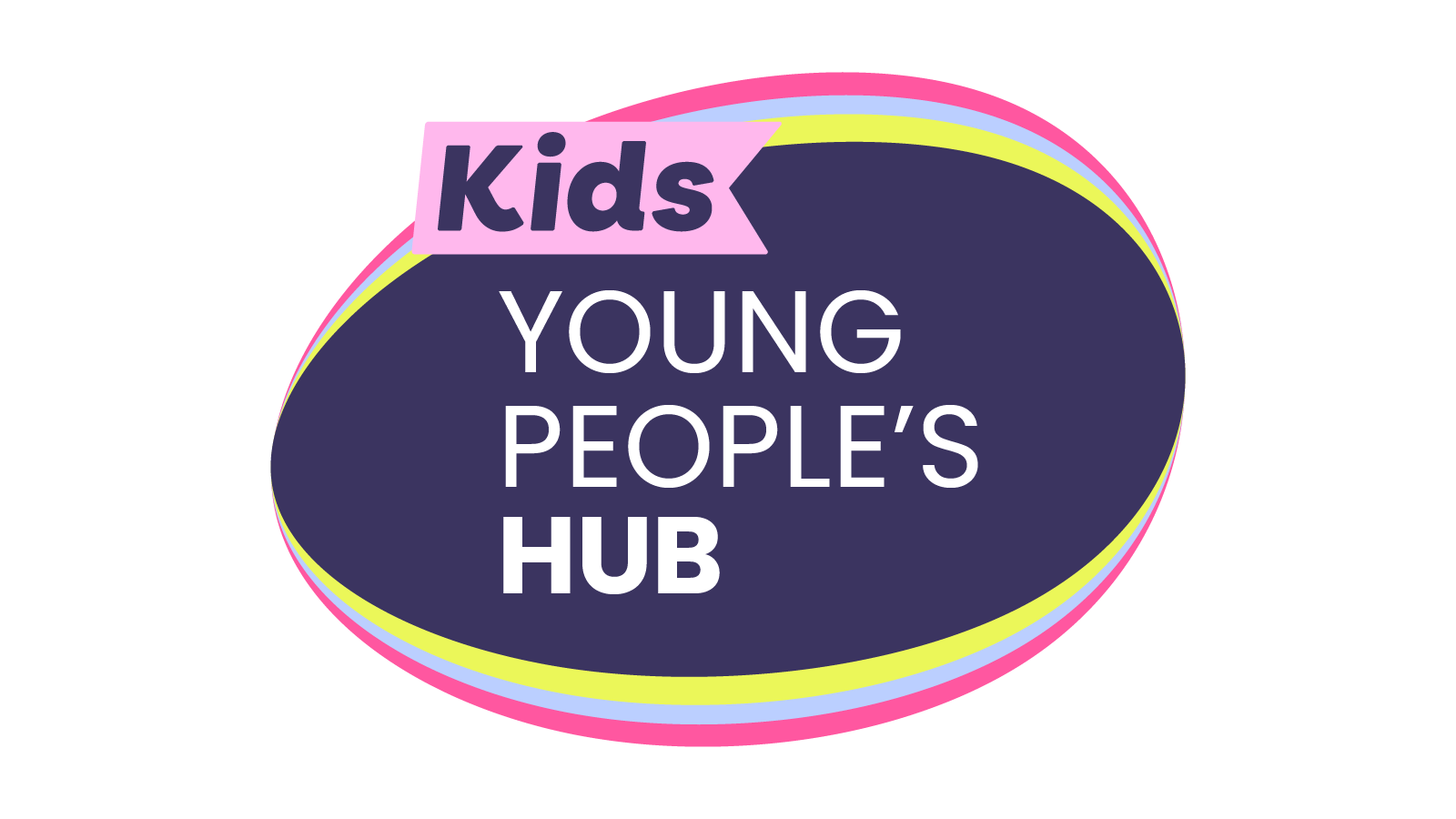Going to school, college or university with ADHD
School can be a bit of a rollercoaster when you have ADHD. Some days it feels like you’re on a super-fast ride, and other days it feels like you’re stuck in a queue that never moves.
This guide is for you – to help you understand your own experiences and to give you some ideas on how to make school life a little easier.
Day to Day School Life
Daily school life with ADHD can be a mix of highs and lows. The challenges you face might feel constant, but it’s important to remember the good parts too.

Common Challenges
- Focusing: Trying to concentrate in a long lesson, especially when it’s quiet, can feel like trying to listen to one song when ten are playing at once. Your brain might jump from one thought to the next.
- Impulsiveness: Sometimes you might blurt something out or get up to move without thinking. It’s not because you’re rude, it’s because your brain gets ahead of itself.
- Organisation: Keeping track of homework, deadlines and all your books can be a real struggle. It might feel like you’re constantly losing things or forgetting what you’re supposed to do next.

“I know the answer, but by the time I’ve put my hand up I’ve forgotten what I was going to say.”
“My teacher thinks I’m not listening, but I’ve just been thinking about something else for a minute.”
Young People
Some positive moments...
- Creativity: Your unique way of thinking can lead to amazing ideas for projects and problem-solving.
- Energy and Spontaneity: You might be the person who comes up with a fun idea or a new way to do something. You’re never boring!
- Hyperfocus: When you’re interested in something, you can often dive deep and learn a huge amount in a short time.

What Helps (and Doesn't) in the Classroom...
You know best what works for you. Here are some common things that can make a difference and some that really don’t help at all.
Movement Breaks:
Being allowed to stand up, stretch, or even walk to a different part of the room for a minute can help you reset and refocus.
Fidget Tools:
Having a fidget toy, a stress ball, or even just a pen to click can help channel some of that extra energy and let your brain focus on the lesson.
Clear Instructions:
It’s super helpful when teachers break down big tasks into smaller, step-by-step instructions.
Using a Study Buddy:
Working with a friend who can help you stay on track or double-check that you’ve written down the right homework can be a game-changer.
Visual Timetables and Checklists:
Having your day or a task laid out for you to see can make it much easier to follow and manage.
Technology:
Using apps that help with organisation, text-to-speech software, or even a timer on your phone can make a huge difference in managing your work and time.
Sensory Tools:
Things like noise-cancelling headphones during independent work, or even just a different coloured pen for notes, can help you tune out distractions and focus.
What Young People Wish Teachers and Classmates Understood
It can feel like a lot of people just don’t get it. Here’s what you might wish they knew about life with ADHD.
- It’s not a choice: You’re not being lazy or naughty on purpose. Your brain is wired differently, and that’s okay.
- The feeling of overwhelm: Sometimes, a classroom just feels like too much, with the noise, the people, the work. It can be like having hundreds of internet tabs open at once.
- ADHD isn’t just one thing: Everyone’s experience is different. Some people with ADHD are very hyperactive, while others are more inattentive and might just seem “daydreamy.”

“I want my teacher to know that even if I look like I’m not listening, I can still be taking everything in.”
How can Schools be More Inclusive?
You have the right to feel comfortable and supported at school. Here are some ideas for changes that could make a big difference.
Practical Adjustments in Classrooms
- Flexible Seating: Giving students the option to sit in a quiet corner or on a different kind of chair.
- Sensory Areas: Creating a designated corner in the classroom with a soft rug and some quiet fidget tools for when things get too loud.
- Visual Aids: Using lots of pictures, diagrams, and written lists for instructions and schedules.
- Breaking-down Information: Teachers can break down long lessons into smaller, manageable chunks with short breaks in between.
- Clear Expectations: Having a clear, written-down list of class rules, knowing what to expect and what’s expected of you, can help everyone, especially those who struggle with impulsivity.


“Have desks in classrooms that are adapted for wheelchair users”
“Have smaller classroom sizes”
“If one room is too small, remove some posters and make the room more airy”
“Time-out spaces”
School-wide Approaches
- Training for Staff: Teachers and staff should be trained on what ADHD really is and how to support students, so they can see beyond the behaviour.
- Inclusive Policies: Having policies that support neurodiversity, such as allowing movement breaks and recognising that not all students learn the same way.
- Building a culture of inclusion and understanding: A school where everyone learns about neurodiversity, from staff to students, is a better place for everyone. When people understand, they are more likely to be kind and accepting.
This isn’t about fitting in; it’s about having a school that fits you. Your voice matters, and by sharing your experiences, you can help make things better for yourself and for other young people with ADHD. If you’d like to get more involved with having your voice heard, check out our Youth Voice section and find the best option for you 😊

“Give better training to teachers”
“Teachers singling a student out when they were clearly struggling”
“My SENCO teacher was amazing and helped me in 1-to-1 English lessons”

Final Thoughts...
Ultimately, navigating school with ADHD is a journey, not a race. Some days will be smoother than others, and that’s completely normal. Remember, you have a right to feel supported and to have a school environment that works for you. Your experiences and your way of seeing the world are valuable. The unique way your brain works isn’t a flaw – it’s a strength that brings creativity, incredible energy, and a fresh perspective to everything you do.
You are the expert on you. Trust your instincts, be kind to yourself, and never be afraid to ask for what you need. When you’re understood and supported, you can reach your full potential.
Resources
Some extra info you might find useful…
Other stories you might like




